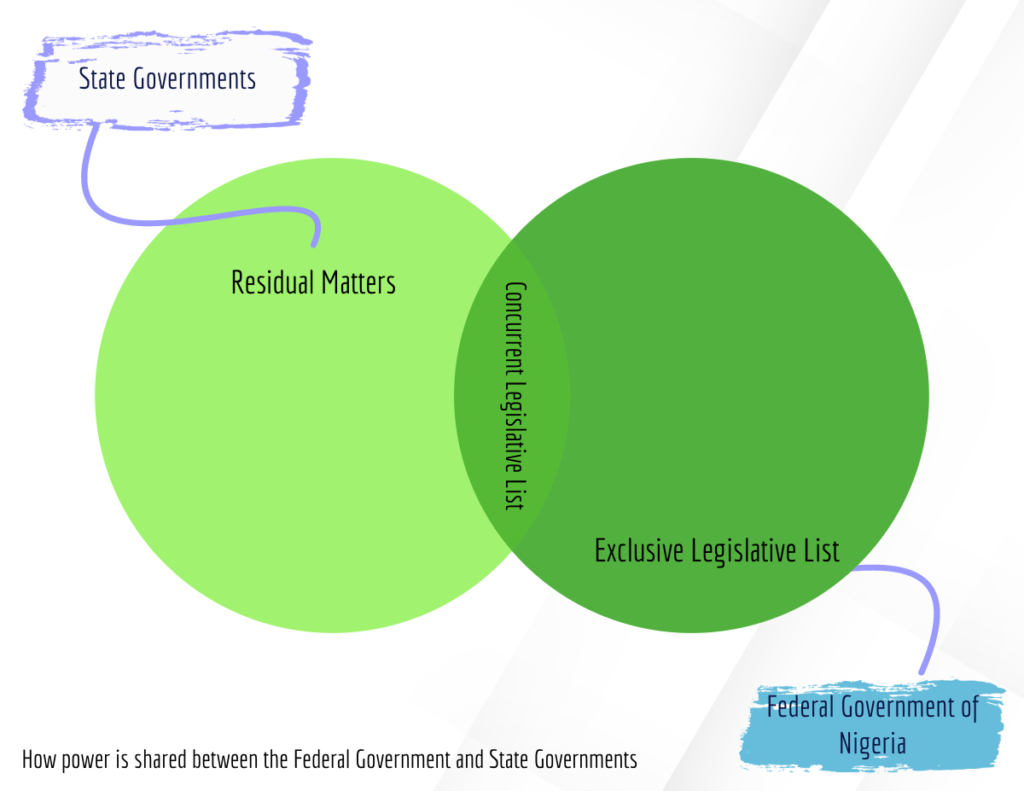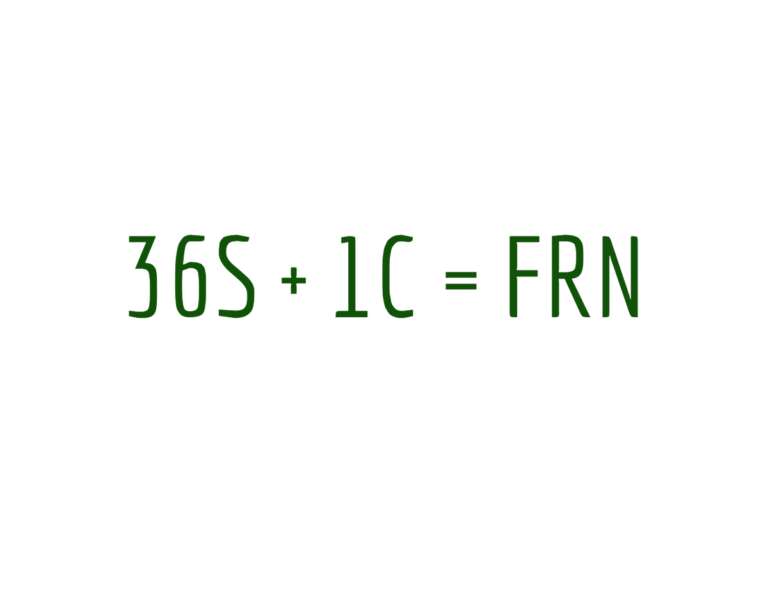This blog post is made possible by TARP Africa’s partnership with the Citizens Classroom.
The Meaning of the Name and Why You Should Care as a Citizen
Everyone has a government name. Our government name is Citizen’s Classroom Ltd/Gte, but we call ourselves CitizensClassroom for short. In the same way, the government name of this country is the Federal Republic of Nigeria, but it is called Nigeria for short. You’ll find its government name in section 2 of the Constitution of the Federal Republic of Nigeria, 1999:
(1) Nigeria is one indivisible and indissoluble Sovereign State to be known by the name of the Federal Republic of Nigeria.
What’s in a Name?
Names are valuable because they are part of our identity. Names are also important because they give us an idea of who we are and our place in the world. Some Nigerians are upset about Nigeria’s government name because they believe it doesn’t exist as its name suggests. To these people, Nigeria is really the Unitary Republic of Nigeria because the word ‘Federal’ and the concept of ‘Federalism’ seem faulty in practice.
You must have heard words like restructuring and true federalism. They are words that can cause heightened emotions and passionate condemnation. Politicians of all kinds have campaigned on it; commentators on television have blown hot steam talking about Nigeria’s need to be a federation in words and indeed. These well-meaning citizens have said things like: “There is too much power at the Centre,” “Let us go back to the Regions,” and “Abuja cannot keep controlling everything.” In this article, we will explain federalism and you should care.
What is Federalism?
There is no clear-cut definition of federalism. Like many concepts in Law and the Humanities, different people define federalism based on their orientation or the type of Constitution their society operates. There is also no universal model of federalism because all the countries that practice federalism (United States of America, India, Sweden, South Africa, Nigeria, etc.) determine their federalism based on their historical, social, political and economic composition.
However, federalism originates from a Latin word, ‘foederatus’, which means bound by treaty. Its root word suggests federalism is an agreement between two or more persons (or states) to reach a common objective. However, for a scholarly definition, Professor Benjamin Nwabueze says:
Federalism is an arrangement whereby powers of government within a country are shared between a national, country-wide government and a number of regionalized (that is territorially localized) governments in such a way that each exists as a government separately and independently from the others operating directly on persons and property within its territorial area, with a will of its own apparatus for the conduct of its affairs, and with an authority in some matters exclusive of all the others.
Nwabueze B. O., “Federalism in Nigeria under the Presidential Constitution” (London: Sweet & Maxwell, 1983) p.1
Federalism is like a Marriage
From Prof. Nwabueze’s definition, it is clear that federalism is about two tiers of governments in a country agreeing to share power while operating separately and independently. That is why section 2(2) provides:
(2) Nigeria shall be a Federation consisting of States and a Federal Capital Territory.
It is like a marriage between a husband and a wife where, although the husband is the head of the house, he and his wife are equal. The husband and wife agree to share duties and responsibilities while exercising authority over the children. In the Federal Republic of Nigeria, the marriage is between Thirty-six States and the Federal Capital Territory.
Now, although there is no universal definition or clear-cut models, there are certain conditions common to most countries that practice federalism:
- The existence of some regions (states);
- A willing surrender of independence by these states of some of their powers to the central authority;
- Existence of some un-surrendered powers by the states; and
- Equality of both the regions and central authority.
Existence of some Regions (States)
Before the Amalgamation of Northern and Southern Nigeria in 1914, the area now known as Nigeria consisted of various tribes and ethnicities that were distinct and independent with culture, law and government. These tribes and ethnicities later evolved into three Regions (Northern, Western and Eastern) through a series of developments that spanned about thirty-seven years (1914 – 1951). These Regions further evolved to become thirty-six States, as we know them today, through a series of developments that spanned forty-eight years (1951 – 1999).
Willing Surrender of some Powers to Central Authority
Federalism was clearly identified under Lyttleton’s Constitution of 1954. Under this Constitution, power was shared between the Federal Government and the Government of the Regions. The Federal Government became the Central Authority, and in all the Constitutional Conferences from 1957 – 1959, the leaders of these Regions and members of political parties continually agreed to surrender certain matters to the Federal Government – meaning that they would not make laws on those matters or exercise control over them. Consequently, these matters yielded to the Federal Government would be known as the Exclusive Legislative List. Some items in the Exclusive Legislative List are Aviation, Defence, External Affairs, etc. This Exclusive Legislative List has featured in all the Constitutions that followed Lyttleton’s Constitution of 1954, except that the number of items in the different Constitutions varied.
Existence of Un-surrendered Powers
Even though the leaders of the Regions and all the political parties at that time agreed to surrender the right to make laws and control certain matters, they maintained that they would not give all their powers away. They retained the right to make laws and control the things peculiar to the culture and identity of the people they represent. These matters are known as Residual Matters. None of the Constitutions we have had since Lyttleton’s Constitution of 1954 have ever created a list for these Residual Matters, but the fact that Residual Matters are the unsurrendered powers of the Regions (now States) is known to both the Federal Government and the Government of the Regions.
However, there is a middle ground. The idea behind sharing powers is that each government knows what has been allotted to it by the Constitution. Nigerian Constitutions have always created a Concurrent Legislative List that lists the items that either the Federal Government and the Regional or State Governments have the power to make laws on. But there is a catch, and in law, it is called the Doctrine of Covering the Field. If the Federal Government has made a law on an item on the Concurrent Legislative List and a State Government makes a law on that item, it must not conflict with federal law or be identical to it. In Attorney-General of Ogun State v. Attorney-General of the Federation, the Supreme Court of Nigeria said:
“It is, of course, settled law, based on the doctrine of covering the field… that if [National Assembly] enacts a law in respect of any matter in which both [National Assembly] and a [State] legislature are empowered to make laws, and a [State] legislature enacts an identical law on the same subject matter, the law made by [National Assembly] shall prevail. That made by the [State] legislature shall become irrelevant and therefore, impliedly repealed.”
Attorney-General of Ogun State v. Attorney-General of the Federation (1982) LPELR-11 (SC) pp 12 – 12 Paras E – G.
Equality of Regions and Central Authority
The Regions did not see themselves as subordinate to the Federal Government (to their credit, the division of power favoured them because enormous powers were given to them). In the same way, the thirty-six States are equal among themselves and the Federal Government. One way equality is evident is in altering the Constitution; the Constitution can only be altered by the National Assembly with input from the State Houses of Assembly.

True Federalism
While federalism has generally been accepted as appropriate for a multi-ethnic and multi-religious country like Nigeria, true federalism is a myth. The test for whether a country is Federal is whether there is a division of power between a central authority and regions and if each of these governments is equal and independent. Nigeria passes this test and is a federation.
Nonetheless, the clamour for true federalism results from the natural problem of federalism: a satisfactory division of powers and revenue between the central authority and the regions. It is a problem that all countries practising a federal system of government battle with. The answer for each country will depend on local context: history, politics, law and society.
Theoretically, the basis of the division of powers is quite apparent: matters of external relations and country-wide interests should be placed in the hands of the central authority, while matters that are not of common interest should be placed in the hands of the states. However, the line is not always clear on several subjects, and in the case of the Federal Republic of Nigeria, some subjects have become thorny National Questions in need of answers: state police, control of mineral resources, revenue allocation, etc.
Why it Matters
This is where you come in as a citizen of the Federal Republic of Nigeria. You have a role to play in answering the thorny questions of our federalism especially in the light of insecurity and other challenges in the country. First, by having an adequate understanding of the issues involved, second by joining in the conversation about the future of the Federal Republic of Nigeria; and third, by putting pressure on those who have the actual power to solve the problems: your legislators at both the Federal and State level. How, you may be wondering? We will explain in another article.

Author – Citizens Classroom
CitizensClassroom is an independent and non-partisan ed-tech organisation that produces 100% free animated videos, podcasts, articles and educational resources to help make principles, theories and facts about three core subjects: Nigerian History, Literature and Government, accessible to everyone and everywhere.To learn more about Citizens Classroom and their projects, visit their website and follow them on Twitter and Facebook.

